#and the history of the old faith
Text
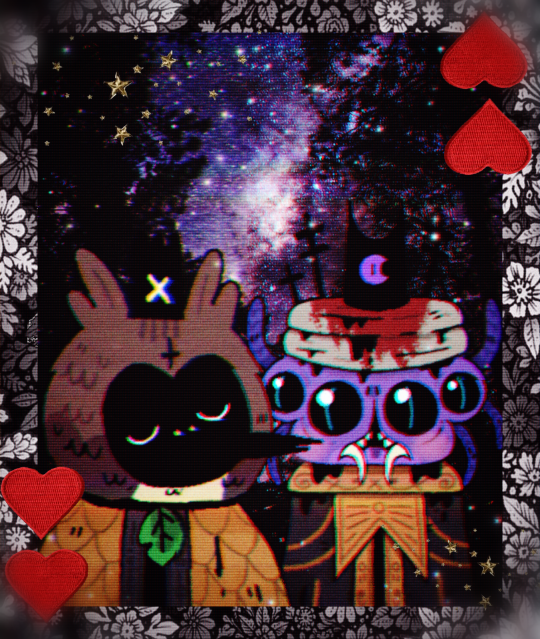
°+*♡*+ A Peck Under Star Lights +*♡*+°
... My EYES Have Away Glow But Never My CHEEKS ...
... My HEART Is skipping So MANY BEATS ...
... My TUMMY Feels The Fluttery Feelings Of MANY BUTTERFLY'S WINGS ...
... My PALMS Are Wanting To MELT In Into ONE ANOTHER ...
... My HEAD Feels So LIGHT That I CAN FLOAT ...
... I Have Felt LOVE ... BUT NEVER LIKE THIS BEFORE ...
°+*♡*+ Feeling BASED On Shamora's Date Friendly Friend Outing To See The Stars +*♡*+°
.... They Didn't Invite Their Siblings For Some Odd Reasons ....
... Leaving Just Them And Haro ...
.. JUST THE TWO OF THEM ..
. ALONE TOGETHER .
#cult of the lamb#cotl#cotl shamura#cotl haro#cotl bishops#bishops of the old faith#...#yeah I ship them#I like them together#I mean haro knows of them and thier family drama#and the history of the old faith#he knows lots of things#LOTS#... I hope we see more of him in the future#......#they want on FRIENDLY outing to see the starry sky#So Many STARS#So Many Colors#.... So Many Different Thoughts and Emotions ....#Especially for the spider#Just getting out of their comfort zone and seeing the celestial abyss with the strange bird#who give them a little surprise peck on the cheekie#.... Leshy heket and kallamar don't need to know .... THEY DON'T ....#photo edit#aesthetic edit#celestialcore#naturecore#virgo's tears vibe#ship post
14 notes
·
View notes
Text
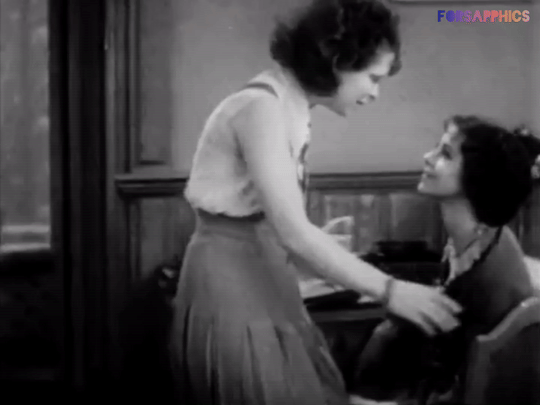
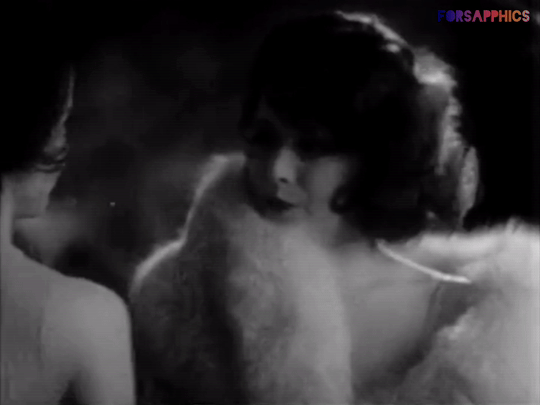
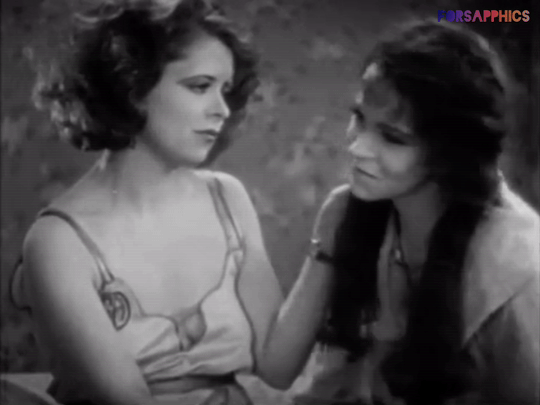
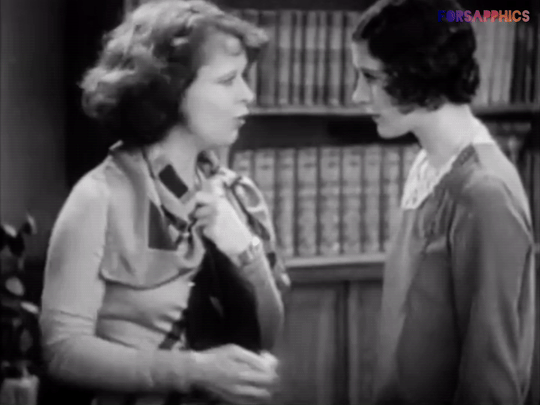

THE WILD PARTY (1929) — dir. Dorothy Arzner
#the wild party#dorothy arzner#stella ames#faith morgan#clara bow#marceline day#wlw#wlw romance#wlw love#wlw history#sapphic#sapphic romance#sapphic love#sapphic history#lesbian#history#lgbt history#old hollywood#1920s#1920s hollywood#sapphics#women#dailytvfilmgifs#dailytvandfilm#cinemapix#b&w
590 notes
·
View notes
Text
that one team green stan who brought up colonization in our argument then blocked me, kept claiming she was team “small folk” but exclusively only wrote essay length posts about her hatred for Rhaenyra and other Targaryens but never about how the Hightowers/other noble families of Old Town and the militant Faith of the Seven lead a religious based war with the intention of colonizing and converting the entire content of Westeros to the faith causing many small folk to lose their lives, some (Northerners) who still face suppression and ridicule for worshiping the Old Gods all the way up to AGOT’s era. all this hundreds of years before the Targaryens even stepped foot in Westeros. and kept ignoring how Aemond burned the Riverlands with the small folk still there. you can’t both be “team small folk” AND “team representation of the oppressive catholic church” lol the layers of hypocrisy never ceases to amaze me.
#but apparently *i* never read the books 🤣#anyway#GRRM wrote 10000 years of history and lore for a REASON#mainly for Dany#but also for little hints like these!#he also is a historian#and was literally inspired by the catholics when making the faith of 7#anti alicent stans#anti green stans#anti team green#anti greens#anti alicent hightower#pro rhaenyra targaryen#pro rhaenyra#pro team black#princess rhaenyra targaryen#rheanyra targaryen#hotd rhaenyra#rhaenyra targeryan#rhaenyra targaryen#queen rhaenyra#house targaryen#house hightower#faith of the seven#old town#otto hightower#hotd jacaerys#daemon targaryen#aemond targaryen
90 notes
·
View notes
Text
John 7:40-52
Nicodemus challenged his fellow pharisees.
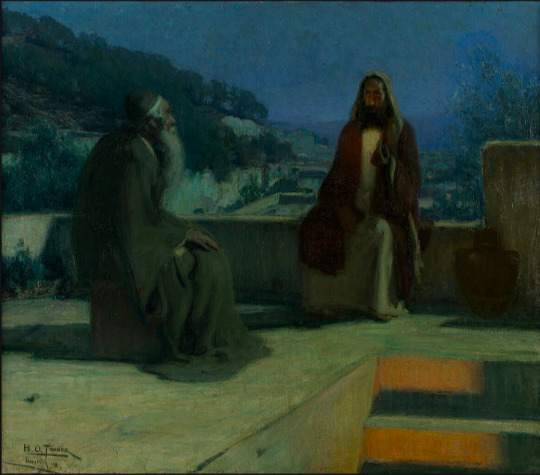
Nicodemus Visiting Jesus,
Painting by Henry Ossawa Tanner (1859-1957),
Painted in 1899,
Oil on canvas
© Pennsylvania Academy of Fine Arts
Gospel Reading
Several people who had been listening to Jesus said, ‘Surely he must be the prophet’, and some said, ‘He is the Christ’, but others said, ‘Would the Christ be from Galilee? Does not scripture say that the Christ must be descended from David and come from the town of Bethlehem?’ So the people could not agree about him. Some would have liked to arrest him, but no one actually laid hands on him.
The police went back to the chief priests and Pharisees who said to them, ‘Why haven’t you brought him?’ The police replied, ‘There has never been anybody who has spoken like him.’ ‘So’ the Pharisees answered ‘you have been led astray as well? Have any of the authorities believed in him? Any of the Pharisees? This rabble knows nothing about the Law – they are damned.’ One of them, Nicodemus – the same man who had come to Jesus earlier – said to them, ‘But surely the Law does not allow us to pass judgement on a man without giving him a hearing and discovering what he is about?’ To this they answered, ‘Are you a Galilean too? Go into the matter, and see for yourself: prophets do not come out of Galilee.’
Reflection on the painting
In today's Gospel reading, we encounter Nicodemus, marking his second of three appearances in the Gospel of John. Initially introduced as a curious seeker who approaches Jesus under the cover of night, Nicodemus is portrayed as intrigued by Jesus yet hesitant to fully embrace his teachings. His journey of faith is subtly woven through John's narrative, culminating in his participation alongside Joseph of Arimathea in ensuring Jesus receives a respectful (indeed, lavish) burial. This progression illustrates Nicodemus's gradual movement towards a deeper understanding and commitment to Jesus. Our reading today is the second (and middle) appearance of Nicodemus. Despite being a Pharisee, he displays remarkable bravery by questioning the outright dismissal of Jesus by his peers, who criticize Jesus based on his origin in Galilee, a region they regard as insignificant compared to the religious hub of Jerusalem. Nicodemus advocates for fairness and due process, arguing that Jesus should not be judged without first being heard. This stance places him at odds with the prevailing opinions of his colleagues, and his challenge is met with scorn, evidenced by their sarcastic comment "Are you from Galilee too?"
Nicodemus's growing relationship with Jesus left him increasingly isolated in the world where he had been so much at home. He actually reminds us that as we grow in our relationship with Jesus, there is often a price to be paid. We may find ourselves a lone voice among our peers. At such times, we know that the Lord is always with us.
Henry Ossawa Tanner painted our canvas in 1899, depicting the first of the three mentions of Nicodemus in John's Gospel (John 3:1-21). The painting was Tanner's entry to the 1899 Paris Salon. We see Nicodemus talking privately to Christ in the evening, a good example of Tanner's nocturnal light paintings. The painting was purchased there for the Wilstadt Collection, Philadelphia, and is now in the Pennsylvania Academy of Fine Arts. The narrative of Nicodemus' meeting with Jesus held significant meaning for Henry Ossawa Tanner's father, Benjamin Tucker Tanner. He was a Bishop in the African Methodist Episcopal Church and had aspirations for his son to join him in the ministry. While Henry's decision to pursue a career as an artist fell short of his father's dream, his talent for painting ultimately produced works that his father could admire and support.
Article by Father Patrick van der Vorst
#christian blog#jesus#bible reading#christian doctrine#bible scripture#biblical#glorytogod#bible#faith in jesus#bible study#modern art#artwork#art history#old art#religious art#bible reflection#art#artists#history#share the gospel#gospel#word of god#kingdom of heaven#christian faith#follow jesus#bible verse#biblical art#spiritual disciplines#spiritual warfare#walk with god
23 notes
·
View notes
Note
Local history museum? Are you from the Baltic coast of Germany?
Might have phrased that wrong, I'm currently on the Baltic coast but not from there, just very interested in old eastern German customs ig and this corner of the country is incredibly fascinating! So I was really taken aback by how few people were in that amazing museum :/ good reminder to support the one in my hometown, I guess. Local history deserves to be known
#ask#i'd never even heard of the old slavic faith that persevered here until the 10th century#(until the danish christianized it. sigh)#so much cool stuff man‚ i love history
13 notes
·
View notes
Text










Back on June 29, 1962, the “Old Faithful” was struck by a bolt of lightning at 2:05 p.m., a direct hit that caused substantial damage
#Old Faithful#struck#bolt of lightning#29 June 1962#anniversary#US history#Petrified Forest National Park#petrified wood#summer 2014#landscape#USA#landmark#countryside#desert#tourist attraction#Arizona#travel#Southwestern USA#vacation#original photography
3 notes
·
View notes
Text
because I am a Very Normal person who does Extremely Normal and Understandable Things
I finally watched the Amazing Maurice animated movie and had a little cry near the end. it was so clear that at least a few key people on the art team had an intense love for the source material - a reverence, even. I mean, there’s even a reference to Dibbler’s invented toilet dragon as the fountain in the town square, which is such a throwaway line that I can’t actually remember which discworld book it’s from without looking it up (but I -think- it might be a Watch book). The Morpork owls as a recurring motif. Twurp’s Peerage and the bat-embroidery on the chair in almost all of the scenes from which Malicia is narrating. Obviously the bust of Pratchett in the mayor’s office. There were so many visual references to the whole body of work, not just the exact source material, that I can’t even remember them all. I could feel the love coming from the art/design team.
And then the script itself betrayed so much of the original narrative’s purpose that I ended up crying a little (you can’t judge me, remember we already established I am Incredibly Normal and thusly Not Weirdly Emotional About Inconsequential Things). It did not strike me as a movie that would have survived into being made had Pratchett been alive - which is not surprising, he pretty famously rejected scripts, especially regarding Tiffany Aching. But I also remember the animated versions of Wyrd Sisters and Soul Music, and how utterly tickled Pratchett was in interviews regarding them — I especially remember how twinkly and pleased he was with some of the artistic direction taken with Cliff, particularly his voice direction and the sound effects used for his movement. So while Pratchett did have a reputation for rejecting film adaptations of his work, he clearly wasn’t impossible to please. I just, in my bones, in a totally Normal And Not Weirdly Sentimentally-Driven Way, do not believe he would have approved the final version of -this- script.
Primarily because it was a children’s book on purpose, and the book spends a lot of time respecting its intended young audience by posing a lot of questions without bothering to provide definitive answers. And so when there is one theme/moral that feels very deliberate and intentionally blatant within the novel, that feels incredibly important to me. To wit: This book makes a very clear statement about how evil is a creation, an action; evil is something concocted by people and put into the world. It is not an accident, it is not happenstance, and most uncomfortably, it can thusly usually not be entirely undone. In my opinion, Spider/The Rat King could not be a clearer way to communicate this concept.
Yes, Spider is evil, and yes in typical Pratchett fashion he indicates that evil is a bit of an expansive concept that cannot be contained within the simplified notion of ���doing bad things,” and he very poignantly wraps this into the concept of creating/exploiting fear. But as a rat king, Spider’s existence is intentional and unnatural. Rat kings are a real, “historical” concept insofar as they have existed as a myth for a very long time. I remember reading about them in my wee years, when rats and rat-keeping became admittedly a special interest of mine. The concept of them in Pratchett’s book mirrors almost exactly their concept in real life: They are a human invention, and the only “evidence” of them has always just been evidence of the extent of human cruelty, largely in service of making a buck. Pickled rat kings were a common sight in early sideshow exhibitions, and you’ll even still find some modern references to or models of them in similar settings today. But they are simply an impossible concept when considering them as “natural” phenomenons — The Amazing Maurice (the book) explains that petty well via Keith’s knowledge of rats and their habits, but even that leaves out the obvious explanation of the fact that rat tails are bony structures that simply do not have the ability to bend into any conceivable knot-shape without being intentionally broken for that purpose. For a book that doesn’t shy away from the carnage and cruelty humans otherwise enact on rats historically, I have to wonder if that was simply the point at which Pratchett himself shared his much-written sentiment of “not wanting to draw you a picture.” Either way, readers of course find out that Spider in particular was created as a “masterpiece” by one of the resident rat-catchers in order to secure entry into the local rat-catching guild. As a result, Spider is both creation and burden to the rat-catchers.
But this entire discussion of rat kings as evidence of cruelty, this whole allusion to evil being a human-made thing, is mostly thrown away in the film. The film takes away both Keith and Malicia’s knowledge of rat kings (the practicality of them and the mythical reputation of them respectively), instead gives both halves of the knowledge to Maurice, and then claims that the rat catchers did not intentionally create the rat king. Rather, while carelessly storing rats they had caught, the two men simply tossed a few rats temporarily into a pot, and upon later lifting the lid to retrieve them, discovered a rat king had been formed — conceding every possible falsehood about rats, their anatomy, and the history of rat kings that Pratchett spent the bulk of a chapter meticulously refuting.
And I, as the Incredibly Normal And Not At All Weird Person we have already established that I am, had a good cry. I was so sad that whoever was in charge of these changes to the script simply did not respect their child audience the way Pratchett himself did. How can you claim to honor or even love his work if your retooling of it is so fearful, so dishonest? The message of “evil is something you put into the world, not something natural to be observed” is such an important concept for children of all ages to be exposed to, and it’s such a narratively satisfying climax to reach after the buildup of sympathy for this rough and tough rat colony who already navigate the casual and perhaps even somewhat “justifiable” cruelty foisted upon them merely for existing in the shapes they have. And while there are a lot of changes in the script that I found disappointing or un-artfully implemented, this particular change felt utterly cowardly. Of course, if as an executive or screenwriter in charge of what gets finalized in a script, your goal is rooted in creating something to mass-produce and sell, then I understand why arming an audience of children with the idea that evil is an action and not a circumstance would frighten you to your boots. But then I have to wonder: Why take this work to adapt? It's not as if it's incredibly well known outside of a somewhat niche and probably slightly older audience. What was there to be gained by taking such a lovingly crafted, respectful narrative aimed at younger people, only to dismantle and subvert the very clear message it contained? By review standards, this film was kind of a flop. So what was the point?
Mostly, again because of how Deeply Normal I am (such that it obviously doesn’t even bear repeating), I felt a lot of sadness for the art team. At least a handful of people in charge of the artistic direction of the film had a deep connection to the Discworld series, and I have to wonder if any of them felt disrespected or otherwise unhappy with the final product they ended up being party to, especially with the love and dedication to visually crafting this story being so apparent on screen. And while I feel personally that there are valid and constructive criticisms to be made about Pratchett’s work, and perhaps more largely about the specific perspective from which he wrote, something that has always struck me about his novels aimed at young readers is the sheer amount of respect he always had for them. This movie carrying a weirdly clear bias of believing that children would only be -seeing- the movie, engaging with it on a strictly visual level, while adults would be the only ones actually -listening-, felt like such an absolute disregard for the love Pratchett clearly had for young readers that it actually made me angry.
There’s not really a larger point to this essay on something as inconsequential as an animated rat movie, but I’ve been thinking a lot about it, and I can’t help but cling to the idea that I’m not the only Really Very Ordinary And Not At All Strange person who had this sort of emotional reaction to this piece of media. Somewhere out there in the wild world of tumblr, someone else might see this and go “yeah…yeah!!!” To which I want to answer, in total commiseration, “yeah :(”
#don’t even get me STARTED on how HARD they had to work to do Rat Sexism via Peaches#or how they just decided Hamnpork was apparently not narratively important enough to make it into the film at all?????#you’re going to tell me Dangerous Beans can’t have his crisis of faith while being supported by his dedicated acolyte Peaches#AND we can’t have Hamnpork discover evil through the relatable eyes of an old set-in-his-ways man????#frothing at the mouth (in a totally normal way)#long post#(I haven’t looked into the production history but I get serious Ordered To Rewrite vibes from like the whole latter half of the movie so)#(but also how did whoever was in charge of these decisions get the rights to this??? h o w did this happen???)
2 notes
·
View notes
Text
<3
#shes cute#really i love how faithful they all are to the original lines it's really impressive#yazs line is driving me nuts rn 'pas de moments d'???'#also thinking abt what mustve been going through 13s head when yaz was like a couple of years#im sure that afterwards if 14 and yaz reunited the doctor would make up every birthday missed#would have to bug yaz for weeks about it to find out how many birthdays it actually were#she wouldnt give that up so easily#'dont worry about it it doesnt matter who cares about birthdays it's been ages ive forgotten who keeps track' etc etc#he'd keep digging until she starts giving up some little details abt those years#they can bond over first hand experience of history now#i think yaz would actually have lost track of how old she is#and i think the doctor would reconstruct her whole personal timeline just to give her her age back#bc it's important#to know how long youve been alive#how long youve survived
3 notes
·
View notes
Text
I'm gonna have to say, and not to be "that guy" but im not hopeful for the new game. Here's my predictions
Moral raiden will die for plot, liu kang will be big sad.
The great kung lao is gonna get screwed over in character in some way or form
Liu kang is gonna have a corruption arc, and either will the final boss (best case) or do some bs anime "no i am better than the past!" And then someone else is gonna be the big bad and its not gonna be shang tsung
Onga will be the big bad but in a stupid way (he's a titan or whatever the fuck unnecessary thing they "added" to the lore. He's shown to be the big baddie but is actually weak compared to his prev incarnations in the games)
Shao Kahn will be the big bad (dumb fan service)
Blaze will be the big bad (bc armageddon will come regardless how many times you try to make ur timeline peaceful, all must come to an end and continue the cycle of mortal kombat)
With how they essentially fucked over their whole divine system (killing the elder gods so cheaply and easily, nerfing raiden, making liu kang the only god, titans are useless additions) i doubt mortal kombat will ever be the same again BUT in a bad/lukewarm way
Im just not hopeful anymore that I'll get my kung fu death tournament again. All i get is a pale imitation of the mcu/dcu but with gore and thats it. And listen, if you like that? Good for you, but as a former fan of superhero stuff? No. I think mortal kombat died and got replaced with something else entirely
#rant#vent#im sorry for being pessimistic but i just dont have faith in the writing of the story now since 11 felt sloppy#its just a cashgrab with a bunch of flash but no soul. tagawa sama took all the soul and thats why shang tsung was the only good thing#maybe its time to let go of the future that will never be for us old fans. new ones will come and change the series too much its a shadow#and then history will repeat itself and the new becomes old and then time and time again we never break the cycle
16 notes
·
View notes
Text

Old keys won't open new doors
#past#history#key#keys#old keys#new doors#believe#belief#art#hope#faith#art journal#artist#albert sackey art#life#journal#sketchbook#notebook#daily journal#daily notes#daily notebook#motivation#inspiration#inspiring quotes#love#albertayebisackey#albertsackeyart#inspo#quote#quotes
5 notes
·
View notes
Note
If Rhaenyra had been an old God's worshipper? How would this have impaacted people's perception of her?
I am confused by this question.
While reading Fire and Blood, and other canon sources, I never had the impression that she was even a devoted worshipper of the Seven? Targaryens are mostly without any religion (Naerys, Aemond the knight, and Baelon are the few).
Why would Rhaenyra worship the North's old gods anyway, since she grew up in the Crownlands? Religious practice usually comes with up upbringing and was a part of your life since childhood because it was intrinsic to the community values and structures that you found yourself in. Religion is not really individualistic.
The Seven is the Andal religion, and the Crownlands are made up of Andal-descendant populations.
Rhaenyra would still be a woman, still be a Targ, would still be questioned and challenged and accused. Because she is a woman. Alicent claims that her own son should succeed Viserys because he is male and Alicent wanted power. Women in Westeros, by themselves, were not believed to be capable to lead like men, are not given many of the same privileges as men, and have been historically passed over for the throne due to the Andal custom of male primogeniture. And Jaehaerys I had really set in Targaryen assimilation into Westerosi/Andal culture for his own rule's stability (yes, without giving up Targ incest), continuously favoring or titling his male children and grandchildren over his female children and grandchildren as his heirs (Daenerys and Rhaenys) before the Great Council of 101 A.D. But he himself was also pretty misogynist.
Cregan Starks joins the Blacks partly because he himself had to face the challenge of a relative over his inheritance of Winterfell --Rhaenyra's cause would have made his own stronger. The Arryns aren't old god worhsippers, but they joined Rhaenyra both because the Lady, Jeyne, also had to fight relatives to get her inheritance and because she is already related to Rhaenyra through Aemma Arryn. And she wanted dragonriders if her own to protect other interests. And most, if not all, of Rhaenyra's supporters do so because they took oaths and wanted to uphold the monarch's word, which is supposed to be the law. And Viserys ruled Rhaenyra his heir, never changing it once or faltering.
#rhaenyra i#Rhaenyra Targaryen#asoiaf asks to me#asoiaf#a song of ice and fire#asoiaf religion#the old gods#faith of the seven#fire and blood comment#R'hollr#women in westeros#westerosi women#westerosi nobility#westerosi society#the andals#rhaenyra's characterization#westerosi history#westerosi religions
10 notes
·
View notes
Text
The Cousins Who Did Then Didn't
Exodus 18:1 Now Jethro, the priest of Midian and father-in-law of Moses, heard everything God had done for Moses and for his people Israel, and how the Lord had brought Israel out of Egypt.
Who were the Midianites? After Sarah died, Abraham took another wife. Her name was Keturah and she bore Abraham six sons. The fourth son was named Midian, from whom the Midianites descended. The name Midian means "place of judgment" and "strife". I wonder what was going on in Abraham's life at that time that he named his son this? Perhaps God had not wanted Abraham to remarry. After all Isaac was the chosen son. Ishmael was already a thorn in Isaac's side.
Genesis 25:5 Abraham left everything he owned to Isaac. But while he was still living; he gave gifts to the sons of his concubines and sent them away from his son Isaac to the land of the east.
When Abraham fathered Ishmael, problems arose, and Ishmael and his mother had to be sent away. Abraham does a similar act when he sends his six sons away to the East. Perhaps there may have been strife between the two families, or maybe Abraham just wanted to avoid any strife between his sons and Isaac.
Abraham must have taught his six sons about the Lord, and Midian must have taught his sons because the Midianites initially worshipped God himself. When Moses fled Egypt, he stayed with the Midianites. He even married Zipporah, Jethro's daughter. Jethro was the priest of Midian, a high rank. Moses had lived with Jethro and his family for forty years. Most likely they had developed a close and warm relationship. After the Israelites are freed and cross the Red Sea, Jethro travels to see Moses. With him is Zipporah and Moses’ sons.
Exodus 18:7- So Moses went out to meet his father-in-law and bowed down and kissed him. When Jethro hears all that God had done for the Israeli people the bible tells us he was delighted. Jethro then praises God.
Exodus 18:11 Now I know that the Lord is greater than all the other gods, for he did this to those who had treated Israel arrogantly. In fact, Jethro knew how to offer burnt offerings and sacrifices. Exodus 18: 12- Then Jethro, Moses' father-in-law, brought a burnt offering and other sacrifices to God, and Aaron came with all the elders of Israel to eat a meal with Moses' father-in-law in the presence of God. (Reminds me of when we take communion together.)
Eventually the Midianites do become enemies of Israel? So why? What happened? It all has to do with sex, seduction, and pagan worship. It is now forty years later. Moses and the Israelites had wandered the desert and were preparing to enter the promised land. Israel was staying in Shittim which was the last encampment of Israel before they crossed the Jordan River into Canaan. Shittim was located in the Transjordan regions of Moab and Midian. This is northeast of the Dead Sea in the southern plains of Moab.
As the Moabite woman would cause the Israeli men to worship their gods, most likely the Midianites had also begun to worship the gods of Moab during those forty years the Israelis wandered.
Why was God so angry at the Midianites?
Numbers 25:1,2 While Israel was staying in Shittim, the men began to indulge in sexual immorality with Moabite woman, who invited them to the sacrifices to their gods. The people ate the sacrificial meal and bowed down before these gods.”
How different this meal was when compared to the meal that Jethro had with Moses and the elders of Israel. The Midianites who had once worshipped the Lord, were now worshipping false gods. In addition, they were leading the men of Israel away from God.
Numbers 25:16- The Lord said to Moses, "Treat the Midianites as enemies and kill them. They treated you as enemies when they deceived you in the Peor incident involving their sister Kozbi, the daughter of a Midianite leader, the woman who was killed when the plaque came as a result of that incident.”
Kozbi was not just any Midianite woman. She was in essence royalty. Being a chief's daughter she may have been one of the ring leaders of the woman who were instrumental in enticing the Israeli men to worship their god Baal of Peor. This unholy coalition between the Israeli men and the woman caused the divide between the former allies.
In fact God tells Moses "Take vengeance on the Midianites for the Israelites. After that, you will be gathered to your people." Numbers 31:2
The Midianites having a godly past and turning their back on that God, brought judgment onto themselves. The god they worshipped was Baal of Peor. The Bible tells us that the men's actions yoked themselves to this god. This brought on a plague that would eventually kill 24,000 people. To stop the plague, God commanded Moses to "Take all the leaders of these people, kill them, and expose them in broad daylight before the Lord, so that the Lord's fierce anger may turn away from Israel." Numbers 25: 4.
God's judgement caused the people of Israel to be in great distress. We are told they were weeping. Then an Israelite man brought into the camp a Midianite woman right before the eyes of Moses and the whole assembly of Israel while they were weeping at the entrance of the tent of meeting. Numbers 25:6
Men have been condemned to death because of sin. This sin brought a plague that killed thousands of people, and the people are grieving. Suddenly an Israeli man callously strides right by the meeting tent filled with weeping people. In tow he has his Midianite lover. This was not only disrespectful and rebellious toward God, but toward his fellow Israelites as well. Phinehas, who was chief priest, becomes enraged at what he sees. He follows the pair into a tent. While in the act of intercourse, Phinehas thrust a spear through the pair.
"and followed the Israelite into the tent. He drove the spear into both of them, right through the Israelite man and into the woman's stomach then the plague against the Israelites was stopped." Numbers 25: 8
"The name of the Israelite who was killed with the Midianite woman was Zimri son of Salu, and leader of the Simeonite family. And the name of the Midianite woman who was put to death was Kozbi daughter of Zur, a tribal chief of a Midianite family. Numbers 25:14,15
After this God declares the Midianites enemies of Israel and commands Moses to fight them. Moses does indeed go to battle against the very people he had once lived amongst. Moses and Phinehas kill all the men, including their five kings, burn down their settlements and take captive the women, children and livestock. God in his mercy did not completely wipe out the Midianite people. Probably in deference to Abraham's devotion and obedience to God.
The next time we meet the Midianites is a mere 90 years later. The Israelites had turned from God and were worshipping the gods of the Amorites. As a punishment God allowed the Midianites to oppress Israel for seven years. The Israeli people were so maltreated they sought "shelters for themselves in the mountain clefts, caves, and strongholds." Judges 6:2.
The bible describes the invaders as locusts. They routinely would return to harass the people of Israel year after year.
Judges 6:4- They (Midianites and other peoples from the East) camped on the land and ruined the crops all the way to Gaza and did not spare a living thing for Israel, neither sheep, nor cattle, nor donkeys.
The people were starving, and they called out to the Lord. Into this God anoints Gideon to lead a small army of 300 Israelites to fight the four kings of Midian and their mighty armies. Gideon and his army surrounded the Midianite camp at night, smashed jars, blew trumpets, and yelled causing confusion in the enemy camp. The Midianites were so confused they began to fight and kill each other. The army fled in fear and Gideon and his men chase and kill all four kings and most of the army.
What can we learn from this? God's love is steadfast even when we sin. Even though we may suffer the consequences of that sin, God does not abandon us. When the people of Israel cried out to God because of their suffering, God responded.
0 notes
Text
John 5:17-30
The Son can do nothing on his own.

Holy Trinity Column, Budapest,
Sculpture by Fülöp Ungleich,
Inaugurated on 11th June 1713,
Sculpted stone and gilt-bronze mounts
© Alamy / Christian Art
Gospel Reading
But Jesus answered them, ‘My Father is still working, and I also am working.’ For this reason the Jews were seeking all the more to kill him, because he was not only breaking the sabbath, but was also calling God his own Father, thereby making himself equal to God.
Jesus said to them, ‘Very truly, I tell you, the Son can do nothing on his own, but only what he sees the Father doing; for whatever the Father does, the Son does likewise. The Father loves the Son and shows him all that he himself is doing; and he will show him greater works than these, so that you will be astonished. Indeed, just as the Father raises the dead and gives them life, so also the Son gives life to whomsoever he wishes. The Father judges no one but has given all judgement to the Son, so that all may honour the Son just as they honour the Father. Anyone who does not honour the Son does not honour the Father who sent him.
Very truly, I tell you, anyone who hears my word and believes him who sent me has eternal life, and does not come under judgement, but has passed from death to life. ‘Very truly, I tell you, the hour is coming, and is now here, when the dead will hear the voice of the Son of God, and those who hear will live. For just as the Father has life in himself, so he has granted the Son also to have life in himself; and he has given him authority to execute judgement, because he is the Son of Man. Do not be astonished at this; for the hour is coming when all who are in their graves will hear his voice and will come out—those who have done good, to the resurrection of life, and those who have done evil, to the resurrection of condemnation. ‘I can do nothing on my own. As I hear, I judge; and my judgement is just, because I seek to do not my own will but the will of him who sent me.
Reflection on the Monument Sculpture
In our Gospel reading today we hear how the love of God is manifested through Jesus Christ. Jesus tells us in clear words who he is and how he works with and for his father. One of the stand out phrases is when Jesus tells us that 'the Son can do nothing on his own’. Jesus shares that he is one of the three persons in the godhead... all three persons of the Trinity working harmoniously together...
Our artwork today depicts the Holy Trinity: the Father, the Son and the Holy Spirit. Erected in the centre of Budapest, it was installed in gratitude to God for ending the plague epidemic in 1694, and was also meant to ensure protection from future outbreaks. Three years after its completion in 1706, however, a new plague broke out. The column was removed and replaced by an even richer and more elaborate version. The sculptor Fülöp Ungleich modelled the column which we can find today. It was inaugurated on 11th June 1713 and depicts the three persons of the Trinity.
We believe that the Trinity is One God, three persons, co-equal and co-eternal. The mystery of the Most Holy Trinity is central to the mystery of our Faith. Nr.234 of the Catechism of the Catholic Church reads: ‘The mystery of the Most Holy Trinity is the central mystery of Christian faith and life. It is the mystery of God in himself. It is therefore the source of all the other mysteries of faith, the light that enlightens them. It is the most fundamental and essential teaching in the "hierarchy of the truths of faith". The whole history of salvation is identical with the history of the way and the means by which the one true God, Father, Son and Holy Spirit, reveals himself to men "and reconciles and unites with himself those who turn away from sin”.
Article by Father Patrick van der Vorst
#christian blog#bible reading#christian doctrine#jesus#bible scripture#biblical#glorytogod#bible#faith in jesus#bible study#artwork#art history#religious art#bible reflection#reflection#art#artists#old art#biblical art#share the gospel#spirit of god#read your bible#gospel#new testament#truth#spiritual disciplines#bible devotions#spiritual warfare#sculpture#christian living
4 notes
·
View notes
Text
The Diverse Religions of Westeros: A Journey Through Faith in the World of Game of Thrones https://candepie.com/the-diverse-religions-of-westeros-a-journey-through-faith-in-the-world-of-game-of-thrones/
#house of the dragon#fire and blood#game of thrones#a song of ice and fire#jon snow#aegon targaryen#children of the forest#daenerys targaryen#westerland#essos#history of game of thrones#religions of game of thrones#religions of westeros#all religion of westeros#all religions of game of thrones#westeros religions#the old gods#many faced god#faith of the seven#the drowned god#the lord of light#r'hllor#the old god of the forest
1 note
·
View note
Photo




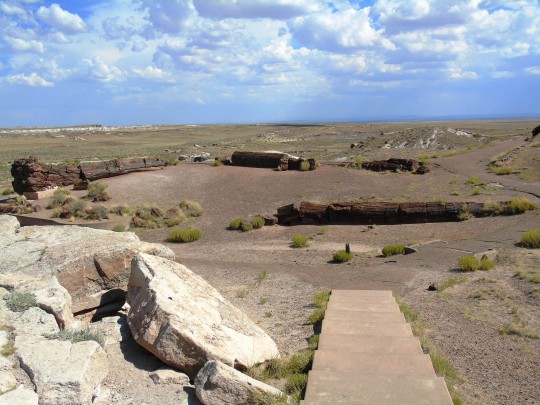





Back on June 29, 1962, the “Old Faithful” was struck by a bolt of lightning at 2:05 p.m., a direct hit that caused substantial damage
#Old Faithful#struck#bolt of lightning#29 June 1962#anniversary#US history#Petrified Forest National Park#petrified wood#summer 2014#landscape#USA#landmark#countryside#desert#tourist attraction#Arizona#travel#Southwestern USA#vacation#original photography
11 notes
·
View notes
Text
Unveiling the Deceptive Critique of Prophet Joseph Smith's Teachings
The post at Life After Ministries attempts to critique Joseph Smith, founder of the Church of Jesus Christ of Latter-day Saints (LDS), by comparing his actions with those of Old Testament prophets.
Joseph Smith Preaching – Teacher of God’s Truth
Introduction
The question of whether Joseph Smith bore the infirmities of others is one that appears to bare significant amount of misrepresentation from a critic of the LDS faith. This recent example comes from Michelle, an active contributor at the Life After Ministries blog, who published a post concerning a quote taken from the “Discourses of…

View On WordPress
#Affliction#Anti-Mormon Rhetoric#Bible#Book of Mormon#Charity#Cherry-Pick Fallacy#Christianity#Discourses of the Prophet Joseph Smith#faith#False Dilemma#Friendship#God#History of the Church#Humility#Isaiah 53:1-5#Jesus#Jesus Christ#Joseph Smith#Life After Ministries#Meekness#Messianic Prophecy#Old Testament Prophets#Prophet#Spirit of Prophecy#Strawman Argument#Suffering#Suffering Servant
0 notes